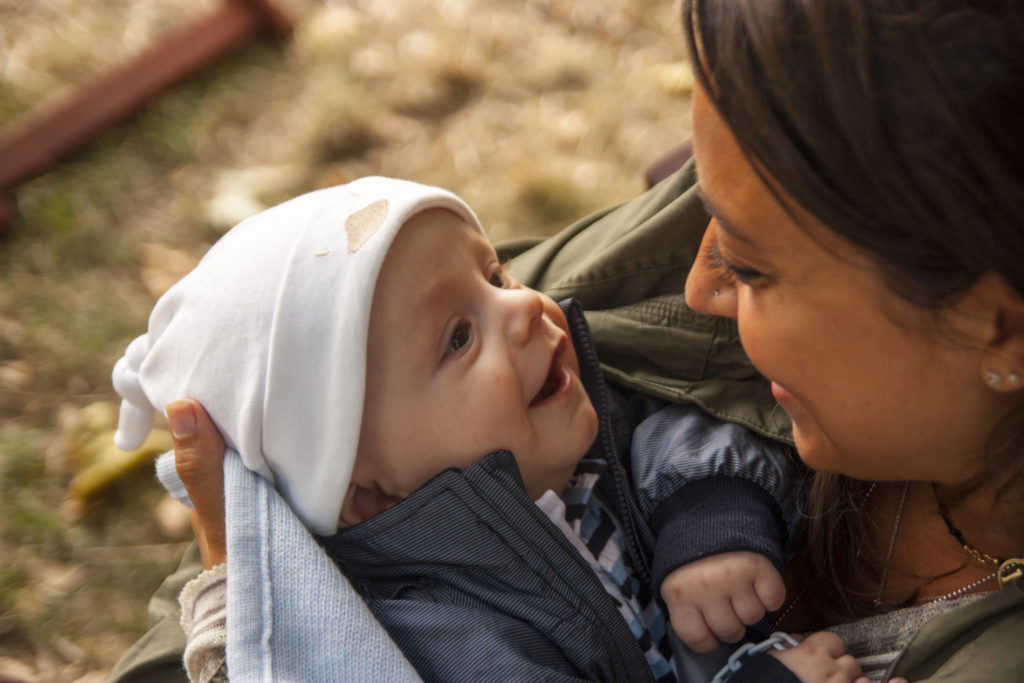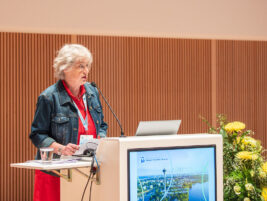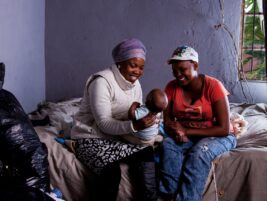As for many of us at WAIMH, Dan Stern represented an ideal– someone who was passionate about and successful in working with infants and parents. He observed, created, and challenged existing paradigms. He enjoyed life in all its aspects. I consider myself very lucky and privileged to have crossed his path professionally and personally in both of his, in fact, now our hometowns: New York and Geneva. Having first been enthralled with the Interpersonal World of the Infant when it was hot off the press back in 1985, as shared by one of his/our early mentors Eleanor Galenson at Mount Sinai’s Therapeutic Nursery in New York, and then having gone on to do my own training in psychiatry and psychoanalysis where he had been (Columbia), with my interest in infancy, parenting, intersubjectivity, and observational research using microanalytic techniques. I remained a fan. It was serendipitous and not at all directly related to the Sterns that I was recruited to the University of Geneva and affliated hospitals to do parent-infant clinical work and research, this being where Daniel Stern worked in the late ’80s before moving to the Faculty of Psychology. Unfortunately, by the time I arrived in 2008, Dan Stern was already in poor health. But, I will always treasure the moments that I was so lucky to have shared with him together with his wife Nadia. Here are two memories, one from either side of the Atlantic:
New York
I was finishing my child and adolescent psychiatry residency in New York in 1998-99. I was feeling very inspired and proud of my work with a very traumatized mother and her toddler (A case as it would turn out that set the stage for a program of research on which I am still working to this day). I was asked by Ted Shapiro at Cornell to present my videos and write-up to none other than Daniel Stern. I started by presenting the history and the context of the videotaped material that I was going to show, proud of my frame-by-frame microanalyses that I had gone over with Beatrice Beebe, a supervisor of mine at Columbia. Stern abruptly interrupted me and said :
“Cut!” “Stop talking and just roll the film…otherwise you are asking us to see what you see– maybe we will see something else. You can talk later.”
I felt like someone had poured a bucket of cold water on my head. But then, after the shock, it was refreshing as I “let the interaction tell the story…” as he would write later, in the book, The Present Moment in Psychotherapy and Everyday Life, following from his work with Boston Process of Change Group.
Letting the interaction tell the story involved learning how to jump into the moment(s) of interaction and stay there with as little memory and desire as possible. By practicing this, I could then discern just by paying very close attention to the sweep of action over time or “the dance” as he called it, the “gestalt” of this mother-daughter relationship without knowing “the story.” As Theodor Adorno once noted in his Quasi una Fantasia : Essays on Modern Music (1963/1998), narrative language or telling can obscure meaning; whereas music and, by extension, Stern’s dance or showing can reveal meaning in far greater complexity and richness.
While nobody could quite get what the story might have been exactly before I told what I knew of it, it did not matter as much as I had thought. Everyone in the room knew already that it was a story of horror, suffering, and loss, but also of attempted repair and great strength on the part of a traumatized inner-city mother. And that is what mattered most. We had all dived into the moment with the coaching by Dan and we were all refreshed.
Geneva
In 2008, when I was recruited to Geneva to run the pediatric consult-liaison unit and to continue my program of clinical research on traumatized mothers and very young children, my wife Christine– also as a speech-language pathologist having read and been a fan of Dan, the kids and I all took up Nadia and Dan Stern on their gracious invitation for tea in their home in Chêne Bougeries, a nearby suburb of Geneva. It was a beautiful day in early summer. I was sitting with Daniel Stern in the Sterns’ magnificent garden. We were sharing recipes (we both enjoyed cooking and had similarly Eastern European grandmothers who had made very rich deserts) while jointly attending with him to the largest sage bush that I had ever seen. He was not so keen on walking. And so we both just sat and chatted outside while Christine, Nadia, and the kids stayed in the house. Then, all of a sudden, he said, “Shhh… listen… and look”. We both lost ourselves for what seemed like a long while looking into the universe : the Sterns’ enormous sage bush filled with flowers, flitting butterflies, and bees. We had both caught a glimpse of a brilliantly colored but very tiny hummingbird that he had spotted. We shared what for me will be an ever-present moment that was inspiring and beautiful. It reminded me that if you don’t take time to stop and look and listen, you will never see the hummingbird–it will have too quickly flown away, unrecognized. The motif of diving into the present moment– the sage bush, and savoring it, was once again refreshing and inspiring. I saw something I would not have seen and there were no words to get in the way.
Such was my schema of “being with Dan Stern” that helped change the way I do things, a variation on that of being with him in the clinical conference at Cornell in New York, that had transformed my afternoon with him in his garden in Geneva. Having taken in this wonderful aftenoon’s interaction with him, I still draw on these memories in my work and elsewhere– as a parent, when words and explanations or theories seem too important and not so helpful.
References
Adorno, T.W. (1963/1998). Quasi una Fantasia : Essays on Modern Music. London: Verso Books.
Stern, D.N. (1985). The Interpersonal World of the Infant. New York : Basic Books, Inc.
Stern, D.N. (2004). The Present Moment in Psychotherapy and Everyday Life. New York: W. W. Norton & Company
Authors
Schechter, Daniel S.,
M.D.,
Switzerland








